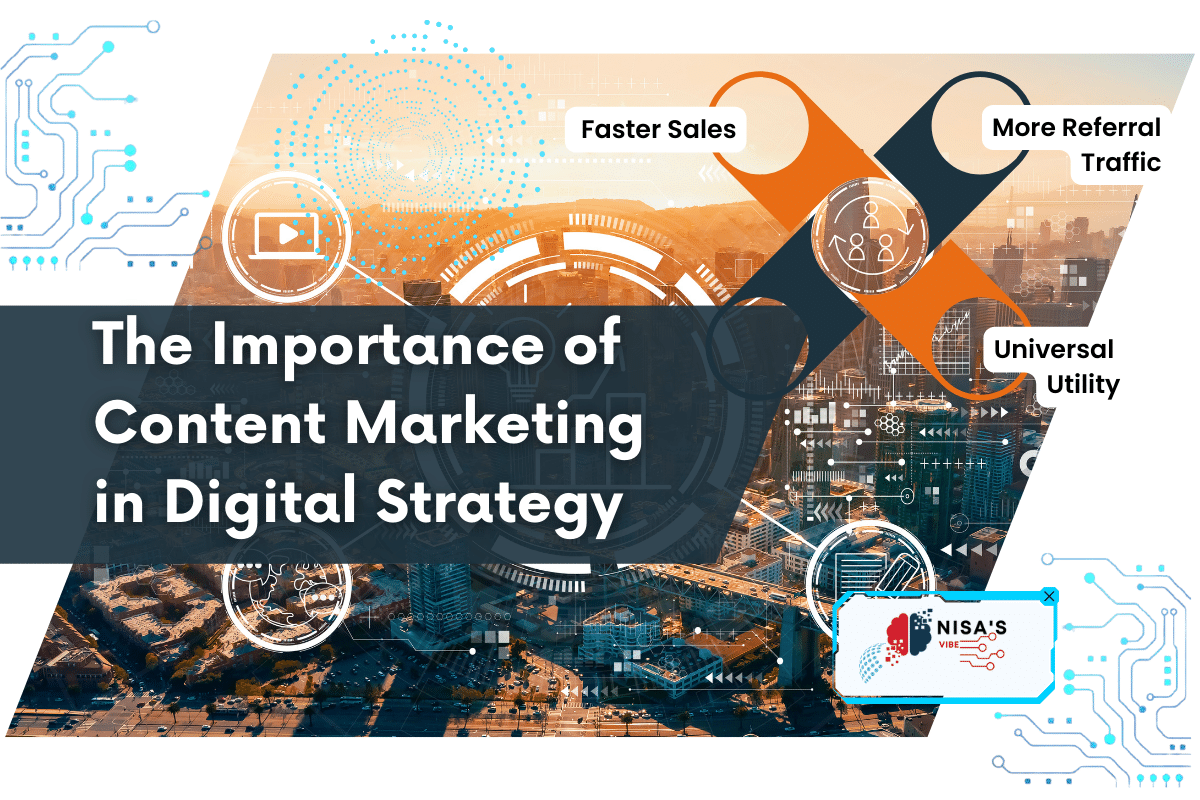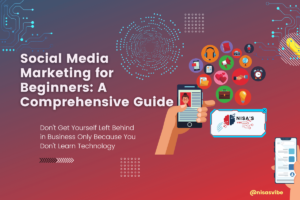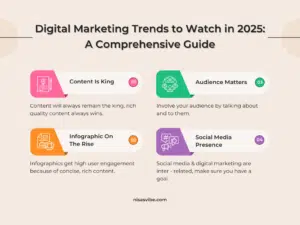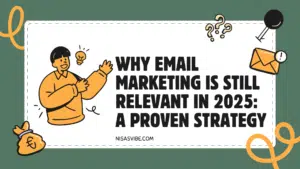Hi, I’m Nisa! In 2025, content marketing remains at the core of any successful digital strategy. Despite the rise of new technologies and marketing tactics, content marketing continues to be one of the most effective ways to build strong customer relationships, drive organic traffic, and boost conversions. In this article, I’ll explain why content marketing is still the backbone of digital strategy in 2025 and how you can leverage it to elevate your business and achieve long-term success.
1. Content Marketing Drives Organic Traffic
One of the most significant advantages of content marketing is its ability to attract organic traffic to your website. By producing relevant, valuable content that aligns with your audience’s needs, you can rank for keywords that bring long-term, sustainable traffic without relying heavily on paid ads.
Why it matters:
- SEO optimization: By integrating targeted keywords into your content, you increase the chances of ranking higher on search engines like Google, driving free, organic traffic.
- Longevity: Unlike paid ads that stop generating traffic once the budget is exhausted, quality content can continue to attract visitors for months or even years.
- Cost-effective: Content marketing provides an excellent ROI, as it helps businesses reduce their dependence on costly advertising campaigns.
How to leverage this strategy:
- Focus on keyword research: Use tools like Google Keyword Planner and SEMrush to identify high-value keywords and integrate them into your content.
- Create evergreen content: Develop content that remains relevant over time, such as how-to guides, tutorials, and product reviews.
- Optimize for SEO: Ensure your content is SEO-friendly by using meta descriptions, alt text for images, and internal linking.
2. Establishing Brand Authority and Trust
In 2025, consumers are becoming increasingly selective about where they spend their time and money. Content marketing helps you establish your brand as an authority in your niche, which builds trust and encourages people to choose your brand over competitors.
Why it matters:
- Expertise: Providing high-quality, informative content positions your business as a knowledgeable leader in your industry, giving potential customers the confidence to engage with your brand.
- Trust-building: When customers find value in your content, they are more likely to see your brand as reliable and credible, which translates to greater customer loyalty.
- Social proof: Consistent, valuable content can lead to positive word-of-mouth, testimonials, and social media shares, helping you build trust across various platforms.
How to leverage this strategy:
- Publish in-depth articles: Focus on creating detailed, educational content that answers questions and provides solutions to common industry challenges.
- Use case studies and testimonials: Share customer success stories and examples of how your products or services have delivered results.
- Engage on social media: Share valuable insights and interact with your audience on platforms like LinkedIn, Twitter, and Facebook.
3. Nurturing Leads and Building Customer Relationships
Content marketing is an excellent tool for nurturing leads throughout the buyer’s journey. Whether your goal is to inform, engage, or convert, content marketing provides the right resources to lead customers from awareness to decision-making.
Why it matters:
- Customer engagement: Regularly publishing engaging content keeps your brand top-of-mind, encouraging ongoing interaction and deeper customer relationships.
- Lead nurturing: Through email marketing, blog posts, videos, and webinars, you can continuously engage prospects and move them through the sales funnel.
- Educational content: Offering useful resources, such as guides, webinars, and eBooks, helps build trust and empowers your audience to make informed decisions.
How to leverage this strategy:
- Create lead magnets: Offer valuable content (e.g., free reports, checklists, or eBooks) in exchange for visitors’ contact information.
- Email marketing: Use content to nurture leads with personalized, targeted email campaigns that provide further value.
- Segment your audience: Tailor your content to specific audience segments to ensure it’s relevant and compelling.
4. Content Marketing Supports Social Media Engagement
Content marketing is essential for a successful social media strategy. Sharing valuable content on platforms like Instagram, Facebook, and LinkedIn helps increase engagement, build relationships, and drive traffic back to your website.
Why it matters:
- Shareable content: High-quality content has a greater chance of being shared, which can significantly expand your reach and drive more traffic.
- Audience interaction: Posting content regularly allows you to engage directly with your audience, answer questions, and build community.
- Consistency: Regularly posting valuable content ensures that your social media channels remain active and relevant.
How to leverage this strategy:
- Repurpose content: Share blog posts, infographics, videos, and podcasts across social platforms to maximize your reach.
- Use visual content: Share eye-catching images, videos, and graphics that resonate with your audience on social media.
- Engage with your audience: Respond to comments and messages promptly to build relationships and foster loyalty.
5. Content Marketing Drives Conversions
Ultimately, the goal of content marketing is to drive conversions. Whether you want visitors to sign up for your newsletter, purchase your products, or book a consultation, content marketing plays a key role in influencing those decisions.
Why it matters:
- Persuasive content: By providing content that educates and solves problems, you’re more likely to persuade visitors to take action.
- Customer journeys: Tailored content guides customers through each stage of the buyer’s journey, from awareness to consideration to conversion.
- CTAs: Strong calls-to-action (CTAs) within your content encourage visitors to take the next step, whether it’s making a purchase, subscribing to your email list, or contacting you for more information.
How to leverage this strategy:
- Create compelling landing pages: Direct visitors to optimized landing pages where they can easily take the desired action.
- Incorporate clear CTAs: Use strong, action-oriented CTAs that guide users toward making a decision (e.g., “Download now,” “Buy today,” or “Sign up for our newsletter”).
- Use case studies and testimonials: Showcase successful customer stories to increase credibility and encourage conversions.
6. Measuring and Optimizing Your Content Strategy
Content marketing doesn’t stop at creation—it’s crucial to measure its effectiveness and optimize your strategy to improve results continuously.
Why it matters:
- Track performance: Analytics help you determine which types of content are driving the most traffic, engagement, and conversions, so you can focus your efforts on what works.
- Continuous improvement: Regularly reviewing content performance allows you to adjust your approach and create content that better meets your audience’s needs.
How to leverage this strategy:
- Use analytics tools: Tools like Google Analytics and social media insights can help track key metrics like traffic, conversions, and engagement.
- Test and iterate: A/B testing allows you to experiment with different content formats, headlines, and CTAs to find what resonates best with your audience.
- Optimize content: Regularly update and repurpose high-performing content to keep it fresh and relevant.
Conclusion: Content Marketing as the Backbone of Your Digital Strategy
In 2025, content marketing remains a vital pillar of any successful digital strategy. From driving organic traffic and building brand authority to nurturing leads and driving conversions, content marketing plays an essential role in helping businesses succeed. By producing high-quality, valuable content and continuously optimizing your efforts, you can position your brand for long-term growth and sustained success.
Focus on quality over quantity, personalize your content to meet your audience’s needs, and regularly track and optimize your strategy to stay ahead of the competition in the digital landscape.
Content Marketing FAQs
Some commonly asked questions about content marketing include:
How often should I create new content?
The frequency of creating new content depends on various factors, including the type of content, the industry, and the target audience. Generally, businesses should aim to create new content regularly to keep their audience engaged and to improve search engine rankings. However, it’s essential to prioritize quality over quantity.
How do I measure the success of my content marketing strategy?
To measure the success of a content marketing strategy, businesses should track metrics such as website traffic, social media engagement, conversion rates, and time on page. Analyzing these metrics can help businesses determine what is working and what needs improvement.
Should I create content myself or outsource it?
Whether to create content in-house or outsource it depends on several factors, including budget, expertise, and resources. In-house content creation allows for more control over the content, but outsourcing can provide access to specialized expertise and save time and resources.
How do I ensure my content is high-quality and engaging?
To ensure high-quality and engaging content, businesses should focus on understanding their target audience’s needs and preferences. They should also conduct thorough research, use data to guide content creation and prioritize visuals and multimedia elements. Finally, businesses should continually evaluate their content and adjust their strategy as needed.
Content marketing is a critical component of any successful digital marketing strategy. By creating valuable and engaging content, businesses can build brand awareness, establish thought leadership, and drive leads and sales. With a clear content marketing strategy and the right distribution channels, businesses can connect with their target audience and achieve their digital marketing goals.




